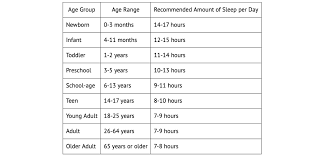The Importance of a Consistent Sleep Schedule
Having a consistent sleep schedule is crucial for maintaining good overall health and well-being. Our bodies operate on internal clocks known as circadian rhythms, which regulate various physiological processes, including the sleep-wake cycle. Disrupting this cycle by inconsistent sleep patterns can have negative effects on our physical and mental health.
Here are some key reasons why maintaining a regular sleep schedule is important:
Better Sleep Quality
Going to bed and waking up at the same time each day helps regulate your body’s internal clock, leading to improved sleep quality. This consistency allows your body to get the right amount of restorative sleep it needs each night.
Enhanced Cognitive Function
A consistent sleep schedule supports optimal cognitive function, including better concentration, memory retention, and problem-solving skills. Adequate rest helps your brain recharge and perform at its best throughout the day.
Improved Mood and Emotional Well-being
Quality sleep plays a significant role in regulating mood and emotional well-being. By sticking to a consistent sleep routine, you can reduce the risk of mood swings, irritability, and feelings of anxiety or depression.
Boosted Immune System
Adequate and consistent sleep is essential for a healthy immune system. When you maintain a regular sleep schedule, your body can effectively fight off infections and illnesses, keeping you feeling strong and resilient.
Better Overall Health
Poor sleep habits have been linked to an increased risk of various health conditions, such as obesity, heart disease, diabetes, and hypertension. By prioritizing a consistent sleep schedule, you can lower these risks and promote better long-term health.
In conclusion, establishing and sticking to a consistent sleep schedule is one of the most impactful steps you can take towards improving your overall health and quality of life. Make it a priority to create bedtime routines that support restful nights of sleep and wake up feeling refreshed each morning.
Top 5 FAQs About Optimizing Your Sleep Schedule
- What is the 15 minute rule for sleep?
- What is the 10 3 2 1 0 sleep rule?
- How do I get a healthy sleep schedule?
- Is 10 to 4 a good sleep schedule?
- What is the perfect sleep cycle?
What is the 15 minute rule for sleep?
The 15-minute rule for sleep refers to a strategy aimed at helping individuals fall asleep more easily when they are having trouble drifting off. The rule suggests that if you have been lying in bed for more than 15 minutes without falling asleep, it may be beneficial to get up and engage in a relaxing activity until you feel drowsy enough to try sleeping again. This approach aims to prevent frustration and anxiety associated with prolonged periods of wakefulness in bed, ultimately promoting better sleep quality by associating the bed with restful slumber rather than restlessness.
What is the 10 3 2 1 0 sleep rule?
The 10 3 2 1 0 sleep rule is a popular guideline that suggests a structured approach to improving sleep quality. The numbers represent a countdown to bedtime, starting with avoiding caffeine consumption 10 hours before sleep, stopping work-related activities 3 hours before bedtime, engaging in relaxing activities like reading or meditation 2 hours before sleep, completing your nighttime routine 1 hour before bed, and finally, aiming for zero screen time right before sleeping. This rule emphasizes the importance of creating a calming environment and establishing healthy habits to promote better sleep hygiene and overall well-being.
How do I get a healthy sleep schedule?
To establish a healthy sleep schedule, it is essential to prioritize consistency and create a bedtime routine that aligns with your natural circadian rhythm. Start by setting a consistent bedtime and wake-up time, even on weekends, to regulate your body’s internal clock. Create a relaxing pre-sleep routine that signals to your body that it’s time to wind down, such as reading a book, taking a warm bath, or practicing relaxation techniques. Avoid stimulants like caffeine and electronics close to bedtime and ensure your sleep environment is conducive to rest, with a comfortable mattress and minimal distractions. By making these adjustments and being mindful of your sleep habits, you can cultivate a healthy sleep schedule that promotes overall well-being and vitality.
Is 10 to 4 a good sleep schedule?
A frequently asked question regarding sleep schedules is whether sleeping from 10 PM to 4 AM constitutes a good sleep schedule. While the duration of sleep is important, the timing of sleep also plays a crucial role in achieving restorative rest. The recommended amount of sleep for adults is typically around 7-9 hours per night, so a 6-hour sleep window may be insufficient for some individuals. Additionally, the hours between 10 PM and 4 AM are considered prime sleeping hours due to their alignment with natural circadian rhythms. However, individual preferences and lifestyle factors can influence what constitutes an optimal sleep schedule for each person. It’s essential to prioritize consistency and quality of sleep over specific time frames to ensure overall well-being and restfulness.
What is the perfect sleep cycle?
The concept of a “perfect” sleep cycle varies from person to person, as individual sleep needs differ based on factors such as age, lifestyle, and genetics. However, a typical adult’s ideal sleep cycle consists of 7-9 hours of quality sleep each night, with a consistent bedtime and wake-up time. This routine helps align the body’s circadian rhythm for optimal rest and rejuvenation. It’s essential to prioritize both the quantity and quality of sleep to support overall health and well-being. Experimenting with different sleep schedules and listening to your body’s cues can help you discover the ideal sleep cycle that works best for you.




